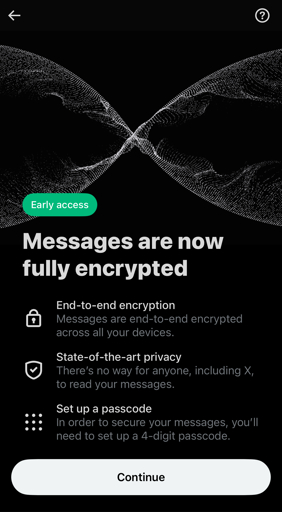Google Restricts Android Sideloading—What It Means for User Autonomy and the Future of Mobile Freedom – Purism
-
If you would get that why wouldn’t you just get a Galaxy S2X Ultra?
I meant redmagic 10 pro plus. My bad.
As for the samsungs:
Because it's priced higher than it should be, it has a slightly lower performance chip, a much lower capacity battery, and older battery tech that will degrade faster and charges slower. The best redmagic out specs the samsungs in every way but picture quality and does it for $500 less.
-
I meant redmagic 10 pro plus. My bad.
As for the samsungs:
Because it's priced higher than it should be, it has a slightly lower performance chip, a much lower capacity battery, and older battery tech that will degrade faster and charges slower. The best redmagic out specs the samsungs in every way but picture quality and does it for $500 less.
Sure, but the Redmagic doesn’t have things the Samsung does - one of which seems to be a dealbreaker for you, the built in stylus.
-
This post did not contain any content.
...in Singapore...
-
In parallel, Google has rolled out its Play Integrity API, which allows developers to limit app functionality when sideloaded, effectively pushing users to install apps only through the Google Play Store.
All of this while EU forbids Apple to do the same, what is the idea here? Measuring how EU reacts?
...did you read the ad...? It quite obviously answers your question and calls out the difference. The large, glaring one. The one that probably even a first grader would grasp.
-
Sure, but the Redmagic doesn’t have things the Samsung does - one of which seems to be a dealbreaker for you, the built in stylus.
Yeah, but I'm not paying an extra $500 for a stylus. Either way I think I'll have at least another year out of this thing.
-
Degoogled ROMs are gonna be the bomb in the future.
The Chinese phones to begin with.
-
I'm sorry, but in that case, it wasn't worth running the app to begin with. You can either find a third-party app that lets you access the same content, such as Newpipe and YouTube, or you can use it from a web browser, such as your bank, and if you can't do either of those, then just don't fucking use that service.
I was willing to totally switch banks because my previous bank required me to use a mobile app and I did not want to do so. If I must go through some annoyance to use something that works properly, I will.
For me at least, running as much open source as I can possibly do is worth more than the inconvenience caused by not being able to use these shit services.
I agree. Not having access on my terms is absolutely a deal breaker for me and could cause me to stop doing business with a company.
-
Yeah, but I'm not paying an extra $500 for a stylus. Either way I think I'll have at least another year out of this thing.
It's not just the stylus. Better screen (I think, though could be wrong, haven't read/watched much about the redmagic but had a quick look at spec comparisons), better software (including Dex), etc.
-
It's not just the stylus. Better screen (I think, though could be wrong, haven't read/watched much about the redmagic but had a quick look at spec comparisons), better software (including Dex), etc.
The better software part is pretty debatable, but dex is cool for the people who use it.
-
I use open source whenever I can, but sometimes that just isn't an option in the real world. I work in IT at a hospital that REQUIRES Duo. I use GrapheneOS. I was able to get it to work, but it was a horrible experience.
If your work requires you to use specific software, make them purchase you a device to run that software on and leave it at work.
Edit: nvm, i see that was brought up already
-
 1
1
-
Meta and Yandex are de-anonymizing Android users’ web browsing identifiers - Ars Technica
Technology 1
1
-
-
-
Telegram and xAI agreed a one-year deal to integrate Grok into the chat app; Telegram will get $300M in cash and equity from xAI and 50% of subscription revenue.
Technology 2
2
-
Keep the Future Human: How Unchecked Development of Smarter-Than-Human, Autonomous, General-Purpose AI Systems Will Almost Inevitably Lead to Human Replacement. But it Doesn't Have to.
Technology 1
1
-
“Treat Online Abuse Like Spam”: New Report Urges Social Media Platforms to Fight Online Abuse with Tools Users Can Control
Technology 1
1
-


